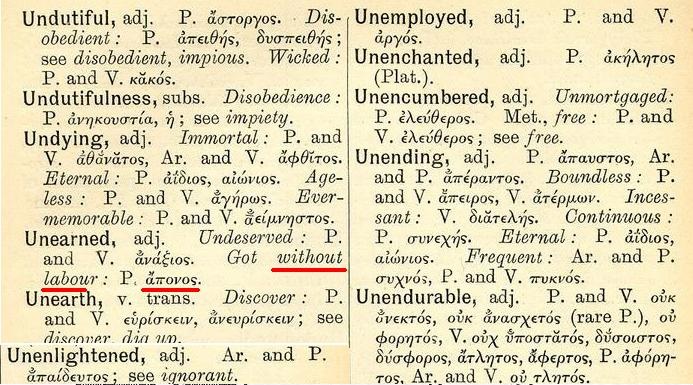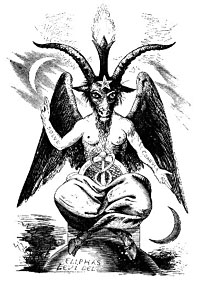Yetos
Regular Member
- Messages
- 5,959
- Reaction score
- 519
- Points
- 113
- Location
- Makedonia
- Ethnic group
- Makedonian original
- Y-DNA haplogroup
- G2a3a
- mtDNA haplogroup
- X2b
Yes of course, this is the definition, but you didn't answer how do you perceive a limitless object or space.
The correct answer would be: (you) see no edges/limits/borders
Now lets find that word in A.G dictionary:

in the lists of un-s(eng)=a(greek), the unending(limitless, boundless) is given a-pa-ustus or a-pera-ntos or a-peir-us(remember EPIRUS)
Indroducing Albanian lexeme 'pa'= to see.
Albanian has two synonyms for the verb 'see' : shoh(sheh) and pa
but both yield the participle: parë
and continuous tense : (duke) parë
Two synonyms are commonly used respectively in two dialects : te shoh(infinitive tosk-standart), me pa(infinitive gheg)
During inflection in a conservative Gheg dialect pa becomes pe, and shoh becomes sheh(see) in Tosk
there is no doubt that a-peir-os means un-seen(not seeing [edges]) and dedicates its meaning to Albanian language.
More elaboration to come, if someone sees any problem(edges, borders), which certainly will be seen in abundance for your convenience.
there is no need to answer you any more,
Ιt is obvious why,
and believe me
Isaid find your mistake
But you did not
instead you pass to spam with 'problematic', and 'speculated' pseudolinguistics,
cause there are 3 coorect terminologies about Epirus
and none of them is what you write,
1 search the alternative name,
2 use comparative toponyms, and IE
3 use/ make a comperative of all dialects/languages,
for example
why Greek Oρος Slavic Goran
and not mountain?
mountains are famous for their view, build fortress with good view,
and using word aperros with negative a- might not mean endless maybe,
Period













